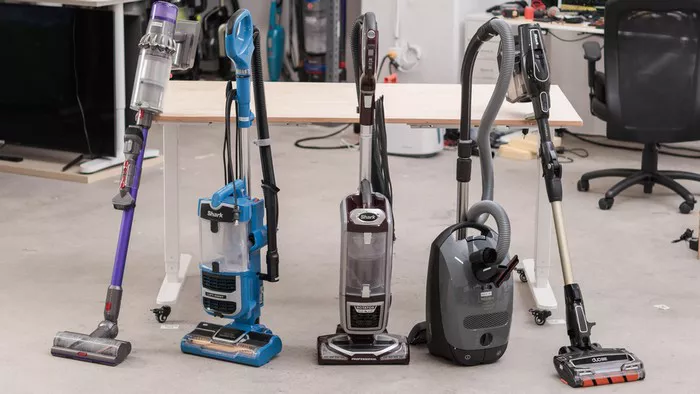In the ever-evolving realm of household cleaning, the debate between cordless and corded vacuum cleaners persists, each boasting its own set of advantages and limitations. With the rapid advancements in technology, cordless vacuums have surged in popularity, challenging the dominance of their corded counterparts. This article delves into the pros and cons of both types of vacuums, compares their performance across various cleaning scenarios, explores technological innovations, considers user preferences, and provides practical recommendations for choosing the right vacuum cleaner.
The rise of cordless vacuum cleaners marks a significant shift in the cleaning appliance landscape. Traditionally tethered by cords, vacuum cleaners have now embraced wireless freedom, offering users unparalleled maneuverability and convenience. This shift has sparked a debate among consumers: Is a cordless vacuum as good as a corded one? Let’s delve into the intricacies of this debate and explore the factors driving the growing popularity of cordless vacuums.
Pros and Cons of Cordless Vacuums
Advantages:
Cordless vacuums excel in maneuverability, allowing users to navigate effortlessly around furniture, reach tight spaces, and tackle above-floor cleaning tasks with ease. Their wireless design eliminates the hassle of cord management and provides unparalleled convenience, making quick clean-ups a breeze. Furthermore, cordless vacuums offer versatility, seamlessly transitioning between different floor types and surface areas.
Limitations:
Despite their convenience, cordless vacuums are not without drawbacks. One of the primary concerns is battery life, as prolonged cleaning sessions may be interrupted by the need to recharge. Additionally, while advancements have been made in suction power, cordless vacuums may still lag behind their corded counterparts in this regard. Moreover, their smaller dustbin capacity may necessitate more frequent emptying during extensive cleaning sessions.
Pros and Cons of Corded Vacuums
Strengths:
Corded vacuum cleaners boast consistent power delivery throughout cleaning sessions, ensuring uninterrupted performance. With no reliance on batteries, they can tackle large cleaning tasks without the need for recharging breaks. Corded vacuums often feature higher suction power, making them particularly effective for deep cleaning carpets and removing embedded dirt and debris.
Drawbacks:
The primary limitation of corded vacuums lies in their tethered design, restricting mobility and requiring proximity to power outlets. Maneuvering around furniture and navigating stairs may pose challenges, especially in larger homes or spaces with limited access to electrical sockets.
Performance Comparison
In assessing the performance of cordless and corded vacuums, various factors come into play, including suction power, runtime, and adaptability to different surfaces. While corded vacuums typically offer superior suction power and longer cleaning sessions, cordless models excel in maneuverability and versatility.
In real-world scenarios, both types of vacuums perform admirably on different surfaces. Cordless vacuums are ideal for quick clean-ups, spot cleaning, and above-floor tasks, while corded vacuums shine in deep cleaning carpets and covering larger areas without interruption.
Technology and Innovation
The rapid pace of technological innovation has propelled cordless vacuum cleaners to new heights, addressing many of the limitations that once hindered their performance. Manufacturers have made significant strides in improving battery life, enhancing suction power through advanced motor technology, and implementing innovative filtration systems to capture fine particles and allergens effectively.
By leveraging lithium-ion batteries and smart charging technology, modern cordless vacuums offer extended runtime and faster charging times, bridging the gap between cordless and corded models. Moreover, advancements in brush design and airflow optimization have further enhanced cleaning efficiency across various floor types.
User Considerations
When selecting between cordless and corded vacuum cleaners, users should consider their individual cleaning needs, living space, and lifestyle preferences. For smaller homes or apartments with minimal storage space, cordless vacuums may offer unparalleled convenience and ease of use. Conversely, larger homes or those with extensive carpeting may benefit from the consistent power and extended runtime of corded vacuums.
To maximize the performance of both cordless and corded vacuums, users should adhere to proper maintenance practices, such as regularly emptying dustbins, cleaning filters, and inspecting brush rolls for debris buildup. Additionally, selecting the appropriate cleaning mode or attachment for specific tasks can optimize cleaning efficiency and prolong the lifespan of the vacuum cleaner.
Conclusion
In conclusion, the debate between cordless and corded vacuum cleaners ultimately boils down to user preferences and cleaning priorities. While cordless vacuums offer unmatched convenience and versatility, corded models excel in power and endurance. By weighing the pros and cons of each type of vacuum, considering technological advancements, and evaluating real-life user experiences, consumers can make informed decisions to meet their cleaning needs effectively.
Whether opting for the freedom of a cordless vacuum or the power of a corded one, choosing the right cleaning companion ensures a cleaner, healthier home environment. Embrace innovation, consider user feedback, and let your cleaning preferences guide you in selecting the perfect vacuum cleaner for your home.

